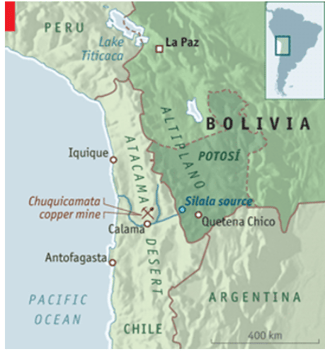
Professor Gabriel Eckstein, director of the Texas A&M Energy, Environmental, and Natural Resource Systems Law Program (EENRSLP) and an expert in international and transboundary water law, recently represented Bolivia at the International Court of Justice public hearings in The Hague, Netherlands.
Eckstein presented to the court in two separate sessions as well as assisting the Bolivian lead counsel during cross-examination.
“Having focused much of my research, publications, and work experience on international and global water issues, it is an absolute thrill to have the opportunity to appear before the International Court of Justice,” Eckstein said.While the facts of this case are specific to the locality, this is one of few international tribunal cases to ever focus on international water law.
The case — Dispute Over the Status and Use of the Waters of the Silala (Chile v. Bolivia) — involves water that emerges from springs in Bolivia in fragile wetlands, and flows to Chile through artificial channels that were installed nearly 100 years ago by a private company for use in Chile.
 The springs and the channels are located on the edge of one of the driest regions in the world — the Atacama Desert — where every drop of water is precious.
The springs and the channels are located on the edge of one of the driest regions in the world — the Atacama Desert — where every drop of water is precious.
Eckstein says the main legal issues focus on the rights and obligations that the two nations have to this water — right to use; rights and obligations to conserve; obligations to prevent harm to the other nation through the use of the water; obligations to notify each other prior to undertaking any activity related to the water.
Professor Eckstein is serving as legal counsel to Bolivia on a team of about a dozen lawyers. He is one of four advocates who will plead Bolivia’s case before the International Court of Justice and also advised Bolivia’s scientific experts, preparing them for cross-examination.
Eckstein said, "it is truly an honor and privilege to serve as counsel to a nation, to represent its interest, and to defend its rights under international law in a case that centers on my particular expertise — the intersection of law and science, especially freshwater resources.”